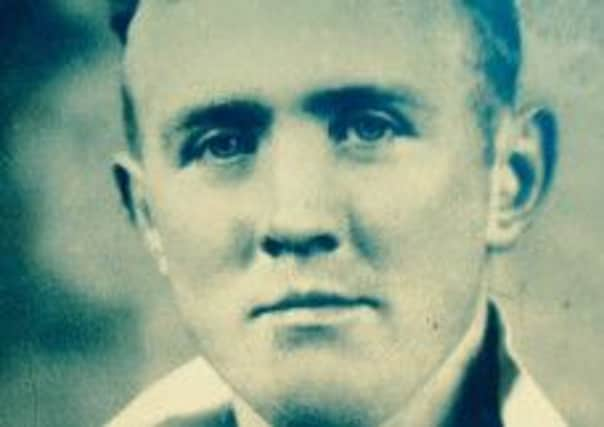Obituary: John Howard Wilson, rugby coach & former internationalist


John Howard Wilson, who has died a week after his 85th birthday, was one of Scotland’s oldest rugby internationals. Known as Howard, he played for Scotland against Ireland at Murrayfield in 1953 aged 22, in a match won 26-8 by the Irish.
Although limited to one international appearance, he was immensely proud of having played for his country. A tighthead prop who weighed 12st 10lbs and was 5ft 10in tall – a far cry from today’s behemoths in that position – he was described as a “mobile prop” but one possessed of the qualities appropriate to that position – tough, strong and combative.
Advertisement
Hide AdAdvertisement
Hide AdIt was not till the day before the match that Wilson knew he would be playing as the man originally selected had to withdraw because of injury. He was delighted his mother and sister were able to attend but disappointed his father could not as he was then working in Ghana for the United Nations.
Playing in front of 60,000 at Murrayfield for Scotland was “his thrill of a lifetime”, Wilson would later recall. Alongside him were players such as Ian Thomson, Heriot’s FPs, Grant Weatherstone, Stewart’s FPs, Doug Smith, London Scottish and later manager of the Lions on their 1971 New Zealand tour, and Alec Valentine who also represented Scotland at hammer throwing in the Empire Games in Vancouver in 1954.
For Ireland the legendary Jack Kyle shone at standoff as did “the hooking vicar”, the Reverend Robin Roe.
Although the Scots were comfortably beaten, The Scotsman reported “it spoke volumes for the courage and fighting spirit of the losers that they never threw in the towel.”
They were significantly outweighed upfront and the Irish backs outclassed their Scots counterparts.
These were “the dark days” of Scottish rugby when the team lost 17 matches in succession between 1951 and 1955, which puts the current squad’s predicament into perspective.
A pupil at George Watson’s College, Wilson was a member of the 1st XV for two seasons in 1946 and 1947. Rugby was in the family genes as his grandfather Jack, later a GP in Selkirk, played in the school 1st XV in 1889-90 as did his father, Professor Adam Wilson in 1923-4. Continuing the family tradition, his son Murray also represented the 1st XV in the late 70s. Wilson also held the school games record for throwing the cricket ball – 109 yards 11 inches – and will do so in perpetuity as the event was discontinued some years ago.
He was born at Boghall Farm at the foot of the south side of the Pentland Hills near Flotterstone where his father managed the farm on behalf of Edinburgh University. There his love of the outdoors was nurtured as he spent much of his youth walking and exploring the Pentlands. After leaving school he undertook national service between 1947 and 1949 in the Signals Regiment in Germany where he represented the British Army of the Rhine at rugby.
Advertisement
Hide AdAdvertisement
Hide AdWilson’s family had been involved in sheep farming in the Borders for generations and on being demobbed he himself became involved in sheep farming there. At the same time he began playing for Watsonians and also represented Edinburgh twice in the early 1950s.
Then, in late 1954, he took the opportunity to go to Tanganyika, East Africa, to work for the Colonial Service as an agricultural adviser where he stayed for over three years. There he met and married Sheila Brooke who was working as a nurse and the couple would go on to enjoy 59 years of happy marriage.
Daughter Leslie recalls her mother telling her how “she had first met this handsome rugby playing Scot and had fallen madly in love with him”.
Leslie and her sister Lindsey were both born in Tanganyika, in Kahama and Bukoba respectively, while brother Murray was born in Scotland after their return in 1958. Leslie remembers how she and Lindsey were initially ticked off at primary school in Scotland for speaking Swahili, a language they had picked up from their nanny. Both Wilson and his wife had very fond memories of their time in Tanganyika.
Wilson resumed playing for Watsonians and latterly some games for Howe of Fife. He was employed in the agricultural sector in different capacities and dabbled in a few small business ventures of his own. Once he stopped playing, he coached at Watsonians for some years. His enthusiasm for rugby and its social side remained unabated throughout his life and his family thought of Myreside, Watsonians’ ground, as virtually their second home for years.
In the mid-1990s, Wilson and his wife moved from Edinburgh, where he was a High Constable, to live in retirement in Elie, Fife, the scene of happy childhood holidays. There he continued indulging his love of nature and the outdoors. He would walk a lot in the hills and woods and was very knowledgeable on all things to do with trees, plants and birds. Bladder cancer was overcome two years ago although “not being keen on doctors”, he did not attend follow-up appointments.
As is hinted in that reference, Wilson was very much his own man, strong-minded and straight-talking, occasionally to others’ discomfiture. But there was also a very gentle, generous and caring side to him, especially with his family.
Declining health last October necessitated his admission to a nursing home south of Edinburgh, in sight of his beloved Pentlands. Despite infirmity he remained determined to make it out there for a hike in the hills but had to content himself with walking in the confines of the home which he did frequently.
A photograph of him in his Scotland kit had pride of place at his bedside, a much-cherished memento. He is survived by his wife, daughters and son.